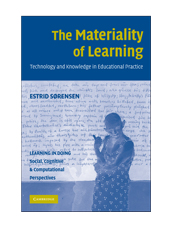4 - Forms of Knowledge
Published online by Cambridge University Press: 15 September 2009
Summary
Over the past few decades, a growing number of scholars have contributed to developing a way of thinking about knowledge as situated in practice. More than anything, this movement is a reaction to a long tradition of understanding knowledge as located in the mind (Taylor 1985). Rooted in Plato's dialogues, rationalism was founded on a conception of knowledge as elicited from the mind by making the mind itself draw attention to that which it already processes. In Locke's empiricism, the mind is a tabula rasa (a blank slate) at birth, and knowledge is inscribed in the mind through observations of the world. Like the rationalists, empiricists understand knowledge as located in the mind, but the source is beyond the mind, in the world (Scheffler 1999). Some of the central points of critique targeted at these and their more or less direct descendants' approaches to knowledge as located in the mind (e.g., von Glasersfeld 1985; Piaget 1972) concern the private nature of knowledge that these theories convey, their individualism, and the essential character of knowledge that they imply (e.g., Dreier 2003; Roth 1999).
Alternatively, approaches to situated knowledge view knowledge not as essential but as constructed in action; not as individual but as placed in the “lived-in world”; not as private but as belonging to communities of practice. Lave (1988) has studied the situated mathematic cognition in everyday practices in supermarkets.
- Type
- Chapter
- Information
- The Materiality of LearningTechnology and Knowledge in Educational Practice, pp. 89 - 136Publisher: Cambridge University PressPrint publication year: 2009



